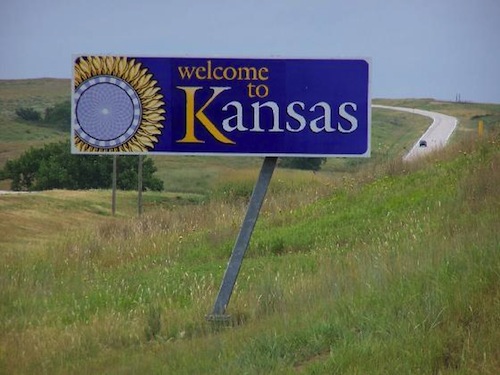Something in the Water: KS Poets Ben Lerner and Cyrus Console in Dialogue at LARB

Topeka-born poets Ben Lerner and Cyrus Console have interviewed each other for the Los Angeles Review of Books. Tom Lutz leads us in, writing that "the two friends discuss their boyhood bedsheets, corn and irony, fundamentalism and pharmaceuticals, how they came to use words like 'metonymic,' 'horizontality,' and 'syntagmatic,' and why they are in the habit of renouncing poetry." As for that renouncing, Lerner and Console connect poetry-making with the sweetness of contemporary products:
BL: So you’re turning against poetry as pastoral denial of ecological reality, but you’re also making contact with a traditional poetic and religious mode, a kind of prophetic denunciation. There are dangers here: your tracking of the corruption of water into soda, of color into artificial dye and flavor, etc., is utterly compelling. But I wonder if you worry about a strain of conservatism in the project in so far as it could be taken to imply a nostalgic longing for a lost organic unity of experience. Is there a fantasy that apocalypse is necessary in order to restore our palates to their supposedly original settings, so we can again experience the sweetness of fruit after the adulterations of soda?
CC: You’ll recall that while writing this book I frequented SHTF and TEOTWAWKI threads online (I’ll leave those initialisms unglossed, since we’re still online, since four million results speak to their relevance better than I can), where the apocalyptic fantasy the book tries to inhabit has many active participants, and where its broadest appeal is how it promises to streamline ethics, reverting us to life in small bands within which survival demands total cooperation, whose members’ allegiances are few but ironclad, and for whom interaction with all the globe’s strangers is but a matter of shot placement. Certainly these approximate the paleolithic conditions in which our moral faculties evolved and toward which the conservative impulse ultimately bends.
Just as the mainstream fantasy moralizes violence (a fantasy about being a thoroughly good person in a world where goodness obliges you to liquidate anyone who gets in your way), the poetic version suggests that the path to salvation leads through collapse. It supposes that in olden days, things preceded names: the names of the animals arise long after the animals themselves. Nowadays names come into being before the thing: the speech of the boardroom, patent office, and factory floor indicates the Big Gulp or the night vision goggles before these objects appear. The essential difference between “product” and “resource” is that whereas resources occasion their own semantic fields, products originate in the word. As products supplant resources, the language/matter relationship we call “truth” erodes together with the precedence of thing and name. Apocalypse is the moment — the blink of an eye or a device — in which product is restored to the status of resource, and we become scavengers again.
I mean, the book is also a fantasy about poetry’s relevance as an art form that could survive the darkening of the grid. But I feel like I’m evading your real question about “danger” or “worry.” Is there a responsible way to look at the bright side of apocalypse? Or do you mean the fallacy of “lost organic unity” — maybe just the “lost” part — is itself problematic?
BL: I mean it risks being reminiscent of, say, Pound’s: “With usura hath no man a house of good stone.” Or Eliot’s Anglican reaction to “spiritual dryness.” And many other Modernist writers who flirted with right wing politics as a kind of restorative grace, as the political equivalent to the poet’s struggle to shore fragments against ruin and so on. Now, I don’t feel like there’s anything politically reactionary about your poems — on the contrary — but I’m trying to figure out how you escape that, given that we have here often magisterial apocalyptic writing about our fallenness.
They also discuss "the manchild" as a form or genre. As Console says, the manchild:
• is sexually mature and thus prepared, in the most basic way, to act.
• does not romance, professionalize, or otherwise leave the arena of boyhood.
• is armed, but his weapon facilitates neither defense nor aggression. Instead, the manchild’s weapon catalyzes an ongoing fantasy of enemies and heroic deeds, just as a rosary or misbaha catalyzes a string of prayers.
Lerner says:
BL: Much of the manchild’s power — and of course this is represented in the collapsed binary of his name, which really indicates a neither/nor relation, not a hybrid — derives from his existing at the threshold between two temporal orders, barred from inhabiting either. In his early essays like “The Metaphysics of Youth,” Benjamin makes a distinction between the temporality of childhood, a kind of “immortal time” of plenitude and purposelessness, and “developmental time”—the time of calendars, clocks, markets. These will grow into the categories of messianic time and bourgeois time in Benjamin’s work, and for Benjamin there’s a sense in which the revolution would make children of us all....
'Tis fascinating. Read it all here.


